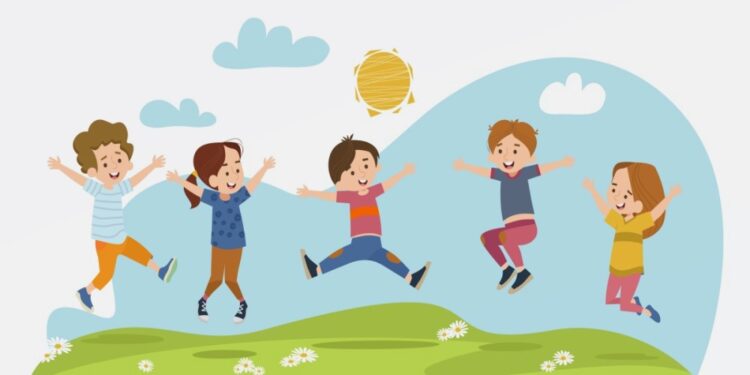We all know that kids need to play to grow and learn. But today, with so many distractions, so many things vying for their attention, the importance of unstructured and imaginative outdoor play is more important than ever before. Children who play outside regularly are more likely to be physically, socially, and mentally resilient than those who are more sedentary. The more time kids spend playing and interacting with their environment, the more likely they are to develop a better connection to nature.
The benefits of outdoor play have been well documented. When children are outside, they get physical activity and fresh air, are able to engage in imaginative play and have opportunities to learn about the world around them. But it’s not just small children who benefit from time outdoors. In recent years, more parents and educators have begun to recognize the importance of recess for older students. The benefits of outdoor play are numerous, and it’s something we should all strive to encourage rather than inhibit.
We’ve given a roundup of different benefits below to help you better understand why your child should be spending more time outdoors.
1. Health benefits
Outdoor learning has also been shown to have a positive impact on one’s health. Children need daily exercise that makes their hearts and lungs work hard, but not so hard that they are exhausted. Children under the age of five need three hours of exercise a day, including bone-strengthening, muscle-building, and cardiovascular exercises.
These needs should be met every day through activities such as running, climbing, digging, and swinging from branches. Sport can also improve a child’s emotional well-being by allowing for relaxation, calmness, and an overall better feeling. There’s no doubt that exercise is an essential part of children’s physical and emotional development, and one of the significant benefits of choosing an outdoor nursery for your child.
2. Hones social skills
Children get to socialize and are exposed to new environments while playing outside, which pushes them to improve. A child learning to work in a group or play safely, for example, can benefit from taking turns on the swing. Their social skills improve as well, as they learn how to look out for one another while treating others with kindness and respect.
It’s also a great opportunity for kids to explore new experiences and make new friends by meeting other kids in a local park or play area. Instead of being glued to the screen and spending all of their time indoors, children that play outside often are able to communicate more effectively. Some of them have no choice but to come out of their shells, make new friends, or approach different children, thereby improving their social and communication skills.
3. Well-being
As a result of being able to play outside, children are happier and calmer. In addition to getting vitamin D from the sun, children who spend time outdoors have a more positive outlook on life. Playing outside also helps kids burn off excess energy, especially if they’re fidgety when sitting for long periods of time. This calms them down and makes them more attentive in the classroom.
4. Independence
While playing outside, children are often far from adult supervision due to a large amount of space available. While socializing with other children, they also learn how to play independently. Because of this, children learn how to be independent and self-reliant by learning how to take turns when playing games and how to pick themselves up when they fall.
5. Awakens curiosity and develops creativity
Young children are fascinated by even the tiniest of things, and they can draw inspiration from even the smallest of things. Playing in the sand in the playground under adult supervision or running around with friends on the school grounds, spending time outdoors encourages creative thinking and problem-solving skills. As a result of the wide-open spaces and lack of restrictions, children are able to be more creative and imaginative. Why? Because a child is more curious about his or her immediate environment. Not only do they notice things more quickly, but they also learn more quickly because their minds are more receptive to a wide range of information than other people.
6. Explore
Outdoor play equipment is often more dangerous than Inclusive playground equipment. Outdoor play equipment can help children learn to push their boundaries and become good at risk assessment. Aside from that, it teaches them to explore new games and gain the confidence to try new things on their own without adult supervision.


































































































































































































